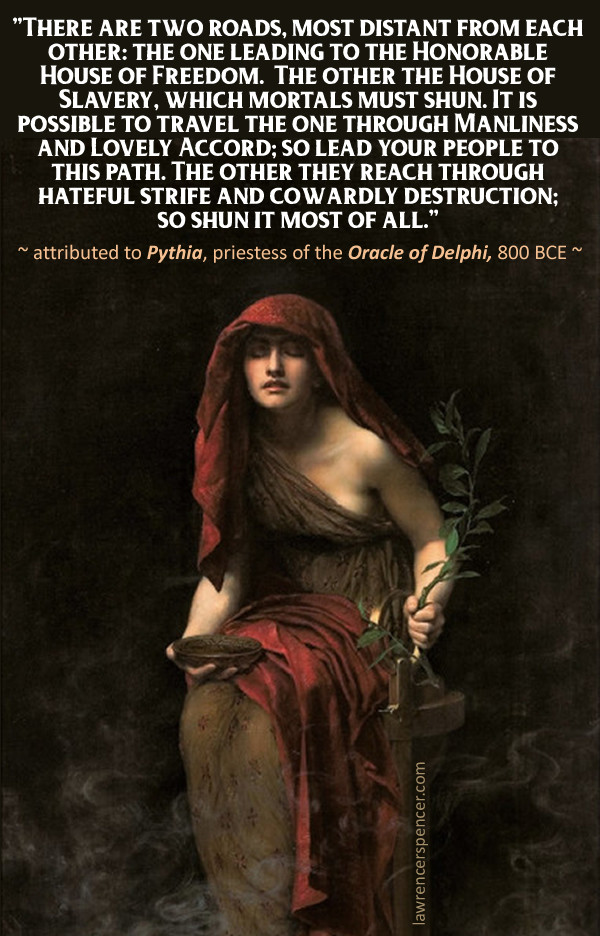Republished by Blog Post Promoter
 “The first true departure that Zeus made from Olympus was to take a body – that of Alexander, the Macedonian prince. As soon as he took over the body, he lost his memory of himself. Amnesia is the condition common to all humans. (As you know, the demands and sensations of the flesh can be quite overwhelming to the being and consume all of one’s attention). Thereafter, Zeus spent all of his time trying to regain his memory of his true self. For example, in his travels across the world, Alexander paused at the Temple of Claros near the western shores of Ionia along his route to Persian conquest from Greece. With a few of his retinue he camped for several days to consult the oracle staff, searching for the answer to his lost omnipotence, yet not knowing what questions to ask them.
“The first true departure that Zeus made from Olympus was to take a body – that of Alexander, the Macedonian prince. As soon as he took over the body, he lost his memory of himself. Amnesia is the condition common to all humans. (As you know, the demands and sensations of the flesh can be quite overwhelming to the being and consume all of one’s attention). Thereafter, Zeus spent all of his time trying to regain his memory of his true self. For example, in his travels across the world, Alexander paused at the Temple of Claros near the western shores of Ionia along his route to Persian conquest from Greece. With a few of his retinue he camped for several days to consult the oracle staff, searching for the answer to his lost omnipotence, yet not knowing what questions to ask them.
 At the outset of his crusade for personal power he crossed the Dardenelles from Thrace with 100,000 soldiers and camp followers. Alexander stopped at Ilium to see the hallowed walls of Troy, though without his memory, not really knowing why. By that time he had already severed the famed Gordian Knot with his sword. This was the deed he used to legitimize his divine destiny of conquest to the plunder hungry hordes of his ever-growing army.
At the outset of his crusade for personal power he crossed the Dardenelles from Thrace with 100,000 soldiers and camp followers. Alexander stopped at Ilium to see the hallowed walls of Troy, though without his memory, not really knowing why. By that time he had already severed the famed Gordian Knot with his sword. This was the deed he used to legitimize his divine destiny of conquest to the plunder hungry hordes of his ever-growing army.
The Oracle of the ancient and prestigious Temple of Apollo at Delphi had already reaffirmed his godly origins. Or so he cared to think. He arrived at Delphi to seek the prediction of the oracle priestess concerning his future as conqueror of the world, at a time she thought to be unpropitious for the god Apollo to entertain his request. She refused to see him and told him to wait for a time more convenient for the god.
Alexander was outraged at her impudence and demanded an audience with her. Again she refused him. Not to be put off by so lowly a one as the prophetess of Apollo, though highly revered by the rest of the Greek world, he ordered her brought to him by force. Spitting, swearing and struggling into his presence, held by his soldiers at spear point, she screamed at him, “You are incorrigible!”
At this admonition from the priestess, Alexander waved her away. Thinking that her words meant that he was invincible, rather than rude and brutish, he wished to hear no more from Apollo. This was the prophecy he sought.
If Alexander would have been patient enough to wait for a proper reply, this is the response which he should have been given by the priestess when he consulted the Oracle of Apollo”, Penelope said sadly as Derek listened intently:
“Behold, Ye Gods and hearken!
Here hides The Holy Harlequin!
His guise, we see, is paper thin.
Though masked in mortal coil,
We know Thee still, Olympian.
He’s here with us, right now on Earth !
Still with us on this speck of dirt:
His power now has been debased —
Celestial Clouds were once His berth.
His Mighty Realm has been defaced !
Omnipotent Abilities ?
What of Heaven’s Mighty Hand ?
He always was so strong and free:
Now, masquerading as a man —
Amnesia drives Him to his knees !
Where to, Celestial Company ?
What of Apollo and The Rest ?
Entombed in mortal effigy !
Omniscient Immortality ?
Like each of Us, covered up with flesh.”
~ excerpted from the book PAN ~ GOD OF THE WOODS
by Lawrence R. Spencer
_____________________________
FOOTNOTE:
The Pythia, commonly known as the Oracle of Delphi, was the name of any priestess throughout the history of the Temple of Apollo at Delphi, which was located on the slopes of Mount Parnassus, beneath the Castalian Spring on the north shore of the Corinthian Gulf in Greece. Each new priestess was selected after the death of the current priestess, and after the legendary death of a man, was always a woman, who surrendered her name and position upon becoming the oracle. The Pythia, established in the 8th century BC, was widely credited for her prophecies inspired by being filled by the spirit of god (or enthusiasmos), in this case Apollo.
The Delphic oracle may have been present in some form in Late Mycenaean times, from 1400 BC and was abandoned, and there is evidence that Apollo took over the shrine from an earlier dedication to Gaia. The last recorded response of the oracle was given about 395 A.D. to Emperor Theodosius I, after he had ordered pagan temples to cease operation.
During this period the Delphic Oracle was the most prestigious and authoritative oracle among the Greeks, and she was without doubt the most powerful woman of the classical world. The oracle is one of the best-documented religious institutions of the classical Greeks. Authors who mention the oracle include Aeschylus, Aristotle, Clement of Alexandria, Diodorus, Diogenes, Euripides, Herodotus, Julian, Justin, Livy, Lucan, Nepos, Ovid, Pausanias, Pindar, Plato, Plutarch, Sophocles, Strabo, Thucydides and Xenophon.
The name “Pythia” is derived from Pytho, which in myth was the original name of Delphi. In etymology the Greeks derived this place name from the verb, pythein (πύθειν, “to rot”), which refers to the sickly sweet smell of the decomposition of the body of the monstrous Python after he was slain by Apollo. Pythia was the House of Snakes.




